Professional Courses
Industry-relevant training in Business, Technology, and Design
Categories
Interactive Games
Fun games to boost memory, math, typing, and English skills
Typing
Memory
Math
English Adventures
Knowledge
CBSE Open Book Exam: How It Works and What Students Can Expect
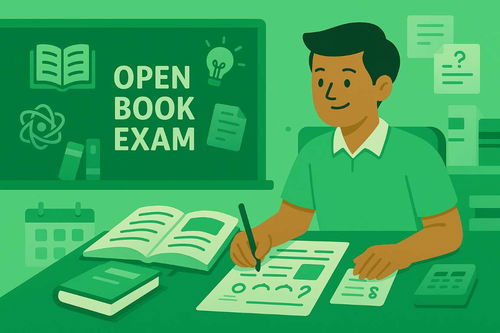
CBSE is exploring a shift in how exams are held. The board is testing a new model called the CBSE Open Book Exam. This is a major move from traditional exams. It supports deeper learning and reduces stress for students.
In this article, you will find everything you need to know about what an Open Book Exam is, which classes will take it, why it matters, and how students can prepare.
What Is a CBSE Open Book Exam?
A CBSE Open Book Exam allows students to use textbooks or notes during the test. This differs from closed book exams significantly, instead of memorising facts, this format tests your ability to apply knowledge.
Questions are designed to assess critical thinking, analysis, and creative problem-solving. These exams are less about rote memorisation and more about smart usage of content. CBSE calls this a pilot project to align assessment with the National Curriculum Framework.
Why Is CBSE Introducing Open Book Exams?
The main reason behind this change is to shift from rote learning to meaningful understanding. The National Education Policy 2020 calls for competency based learning.
Open book exams encourage students to analyse and apply theory instead of just memorising it. They help reduce exam stress and build real-world skills like resource use, time management, and evaluation. CBSE aims to support students in building these abilities early.
When Will the Pilot Run Take Place?
CBSE plans to run the pilot project soon, this initial test will be limited to select schools only. The goal is to gather feedback and work out logistics before any wider rollout.
Which Classes and Subjects Are Involved?
The pilot covers only classes 9 and 11. For class 9, the subjects are English, Mathematics, and Science. For class 11, the subjects are English, Mathematics, and Biology. CBSE has decided not to include class 10 or class 12 in this trial year. Later, they may consider expanding to higher classes.
How Are Questions Designed in Open Book Exams?
Questions in these exams are more complex. They focus on real-life applications where cases and scenarios often form the basis.
Students may be asked to evaluate, compare, or infer based on given data. Simply copying definitions or lines from textbooks will not earn full marks, instead, answers must show reasoning and insight.
Benefits Students Can Expect
-
First, stress levels decline. Since students can refer to materials, their fear of forgetting facts reduces.
-
Second, open-book exams encourage skill development. Skills like organising resources, critical thinking, and time management become vital.
-
Third, students shift to understanding over memory. They learn to connect concepts. This is especially beneficial for higher education and competitive exams.
What Are the Challenges of Open Book Exams?
There are some new challenges too.
-
Time becomes an issue. Students must quickly locate the right information. If not prepared, this wastes exam time.
-
Designing questions is harder. Teachers need to craft complex questions that test depth, not recall.
-
Some students may rely too much on notes and not understand the concept. Training teachers and students for this shift is challenging.
How It Differs from Traditional Exams
-
Traditional exams assess memorisation and accuracy while open-book exams measure application and reasoning.
-
Closed-book tests rely on memory. Open-book tests allow references.
-
Traditional exams are simpler to set. Open-book exams take longer to design.
-
Traditional exams test rote recall. Open-book exams test problem-solving and concept use.
Comparison with Previous CBSE Attempts
CBSE tried a similar model before called OTBA in 2014. It included classes 9 and 11. But the initiative ended in 2017 because it did not meet expectations in building thinking skills. Now CBSE is trying again. Lessons from OTBA are guiding the new pilot under NCF recommendations.
Expected Timeline of Wider Implementation
If the pilot succeeds, CBSE may expand the open book model to larger classes and more schools by 2030. However, official word on class 10 or 12 adoption is yet to come. The timeline depends on feedback and evaluation from the pilot and the expansion will likely include more subjects and assessment types.
What Students Should Do Now to Prepare
Students can prepare even before the change arrives.
-
Focus on understanding concepts and question types.
-
Do chapter quizzes and solve case-based questions.
-
Practice with critical thinking style questions.
-
Time yourself while searching reference materials.
Visit AllRounder.ai’s CBSE Practice Platform for subject practice and mock quizzes. The platform offers tools suitable for shifting to application-based learning.
How Can AllRounder.ai Help You Adjust?
AllRounder.ai offers Mock tests with scenario-based questions, Revision quizzes aligned with the CBSE syllabus, Flashcards for quick concept recall, Progress analytics to track weak areas and Daily quizzes for English, Maths, Science, and Biology.
These resources match the skills needed for open-book exams. They help build clarity, agility, and confidence.
Explore:
How the Exam Day Will Likely Work
At the exam centre, students will be allowed to bring approved materials. They must organise their notes before the exam. They will receive time-limited sections to attempt questions and must manage reference lookup time and writing time well.
Each question will likely include a case or scenario. Answers must be interpreted, analysed, and supported by relevant material. This approach demands both speed and comprehension.
How Answers Should be Structured
Answers in this format should follow these steps:
- Read the scenario carefully.
- Identify key concepts at play.
- Refer to source materials to support your view.
- Write structured answers with justification.
- Use proper terminology and concepts.
- Keep answers focused and logical.
Simply copying text will not earn marks. You must show how you reached your conclusion.
Example Question Format You May Expect
A sample question might say:
“Read this short science case about water usage in agriculture. Then analyse how small-scale farms can cut water waste. Support your answer with principles of transpiration and soil science.”
Students must read, analyse, and then reference theories while proposing solutions. Answers must be original and use the reference wisely.
Will Open Book Exams Reduce Stress?
Yes, but only partly. While students can bring notes, questions will be more demanding. This shifts the pressure from memory to thinking skills. Proper preparation and practice remain essential. Time management becomes key. With good practice, performance anxiety may reduce and confidence may rise.
Teacher and Administration Challenges
Teachers must draft questions differently. They need to ensure fairness and detect plagiarism. Schools must train invigilators. Time allowances must be managed carefully. Schools must also explain rules to parents and students clearly ahead of trials.
How CBSE Will Evaluate Pilot Performance
CBSE will assess:
- How long students take to finish the exam
- How clearly students use reference material
- Feedback from teachers, students, and parents
- Possible scaling feasibility
- Impact on grading and assessment systems
This feedback will guide the decision on whether to expand the system to higher classes in the coming years.
What to Tell Parents and Students Now
Parents and students can start shifting their focus. Understanding should come before memorisation. Study small sections deeply instead of superficially. Use digital platforms like AllRounder.ai for CBSE to practise scenario-based questions. Stay updated on official CBSE notices. Prepare study notes that are easy to access and well organised.
Will Class 10 and 12 Get Open Book Exams?
Not yet. CBSE has decided that class 10 and class 12 will not take part in the pilot. However, they may be included later if the pilot succeeds. For now, only Class 9 and 11 in select schools will experience open-book testing before a wider rollout if the project is approved.
How This Fits with CBSE Reforms
The open book pilot is part of CBSE’s larger push for competency-based learning. The board is introducing new exam formats gradually. In 2026, CBSE plans to offer two board exam chances for Class 10 under a new scheme. These reforms aim to reduce high-stakes pressure and support student learning outcomes.
Final Thoughts
The CBSE Open Book Exam is a bold step toward modern education. It encourages deeper understanding and real-world thinking. Students will learn to apply and argue rather than memorise. The system is still in testing, so only a few subjects in selected classes will take part. However, this pilot may grow soon.
Students should focus on developing strong conceptual clarity. Tools like AllRounder.ai can support this transition. Practice higher-order thinking questions. Prepare study notes well. Work on speed and accuracy.
If CBSE expands the open book model, students who practise this way will benefit most.
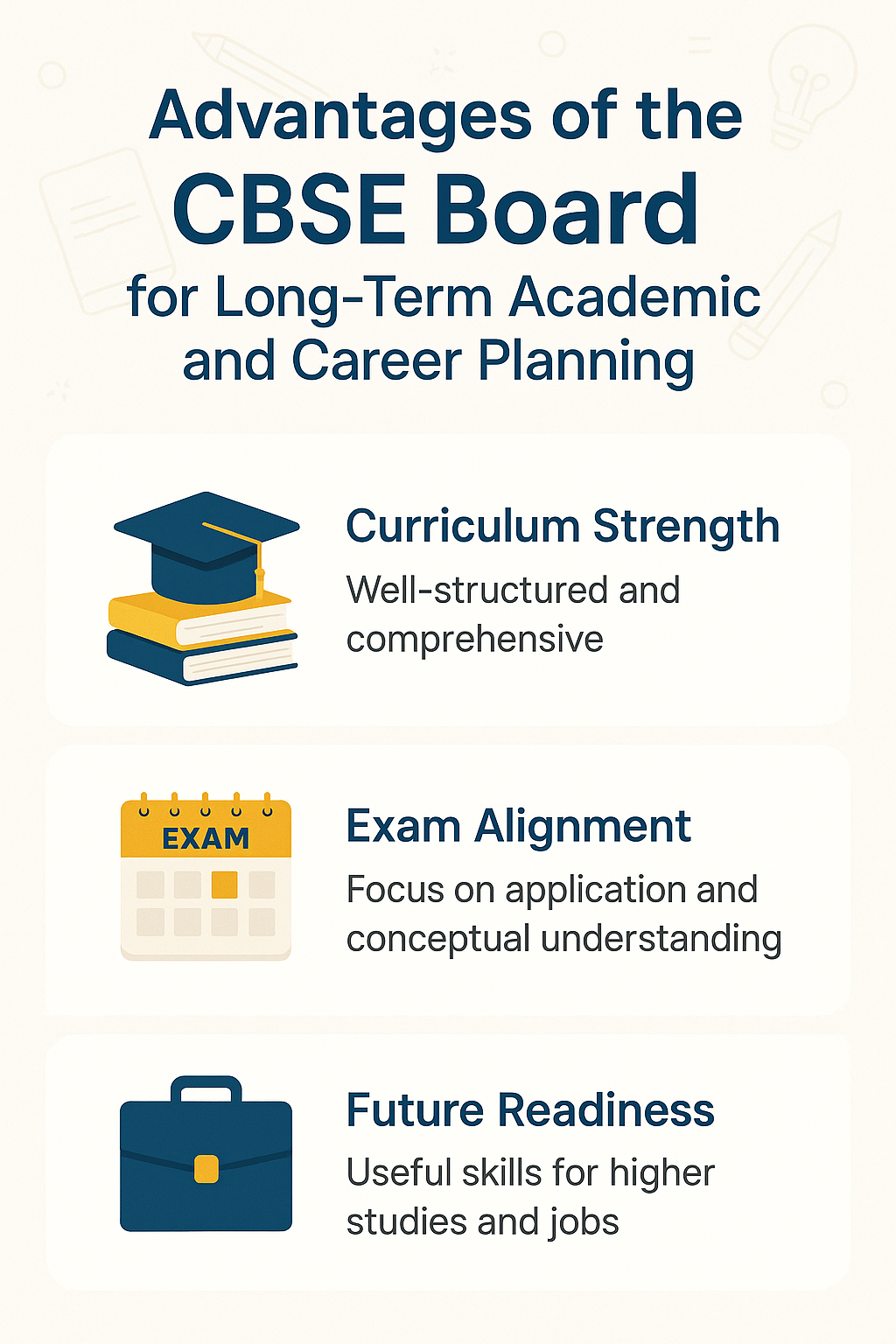
Discover the advantages of the CBSE board for long-term academic and career planning, including curriculum strength,...
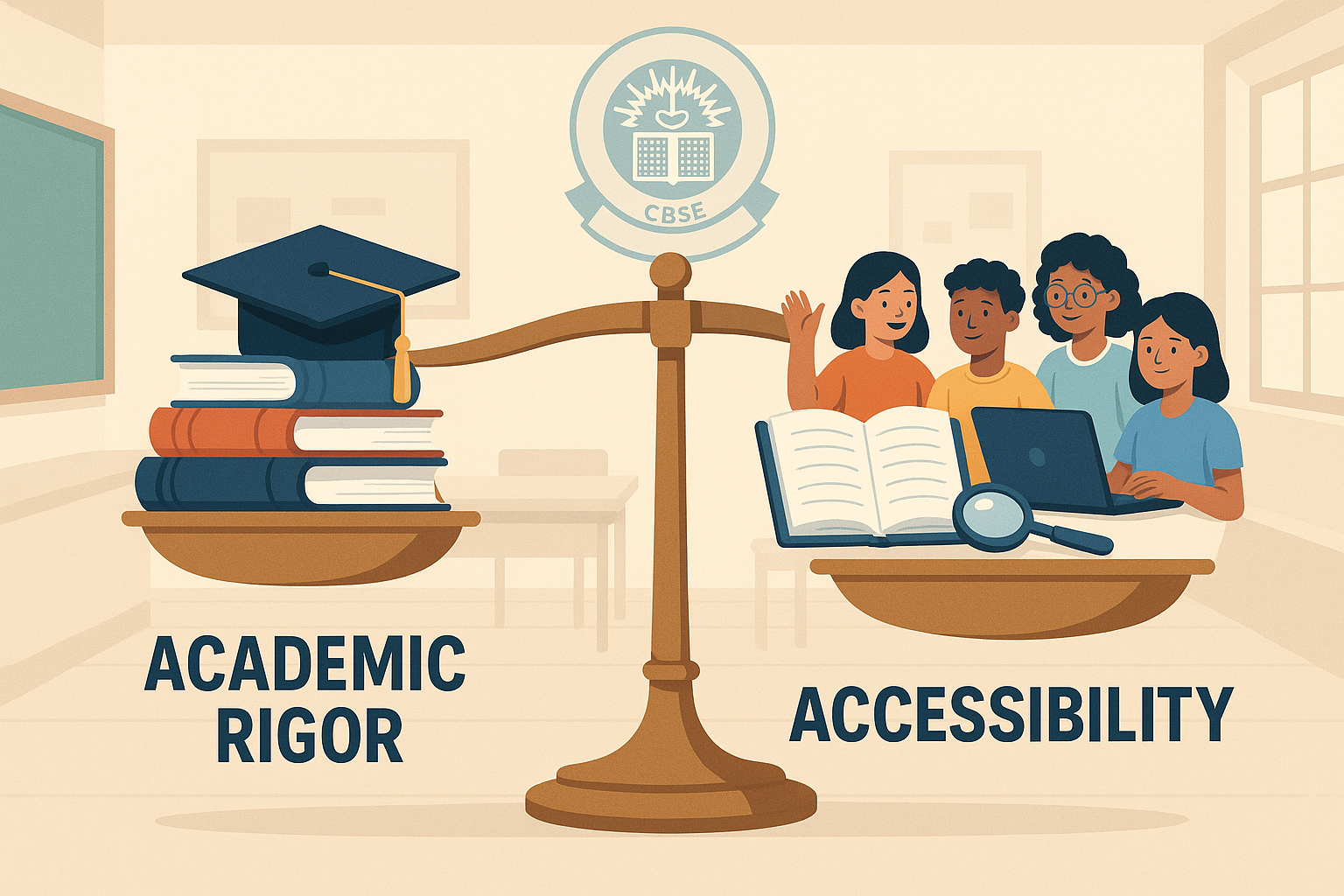
Explore how the CBSE board balances academic rigor and accessibility through its curriculum, syllabus, exams, and...
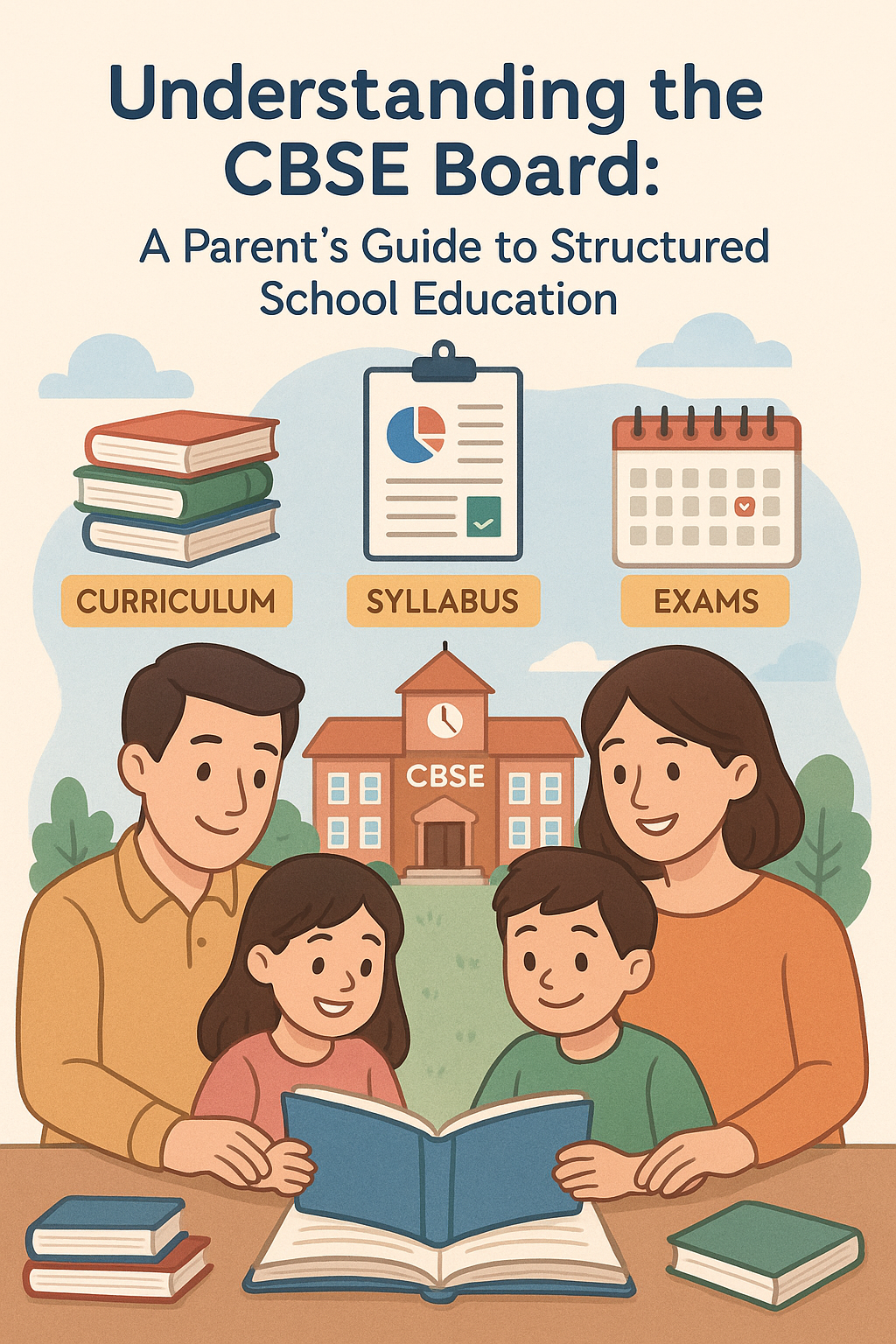
A complete parent’s guide to understanding the CBSE board, its curriculum, syllabus, advantages, exam structure, and...
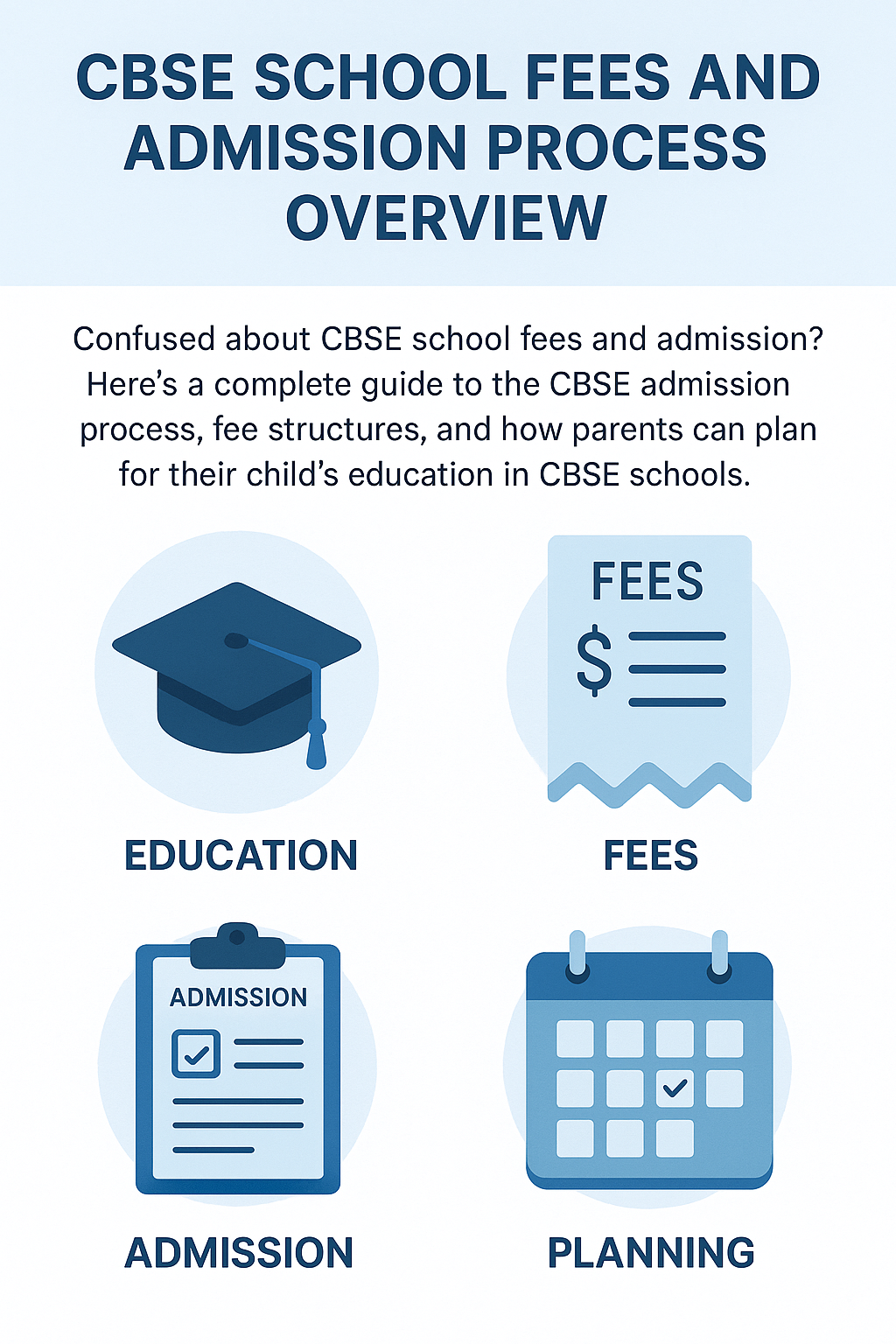
Confused about CBSE school fees and admission? Here’s a complete guide to the CBSE admission process, fee...
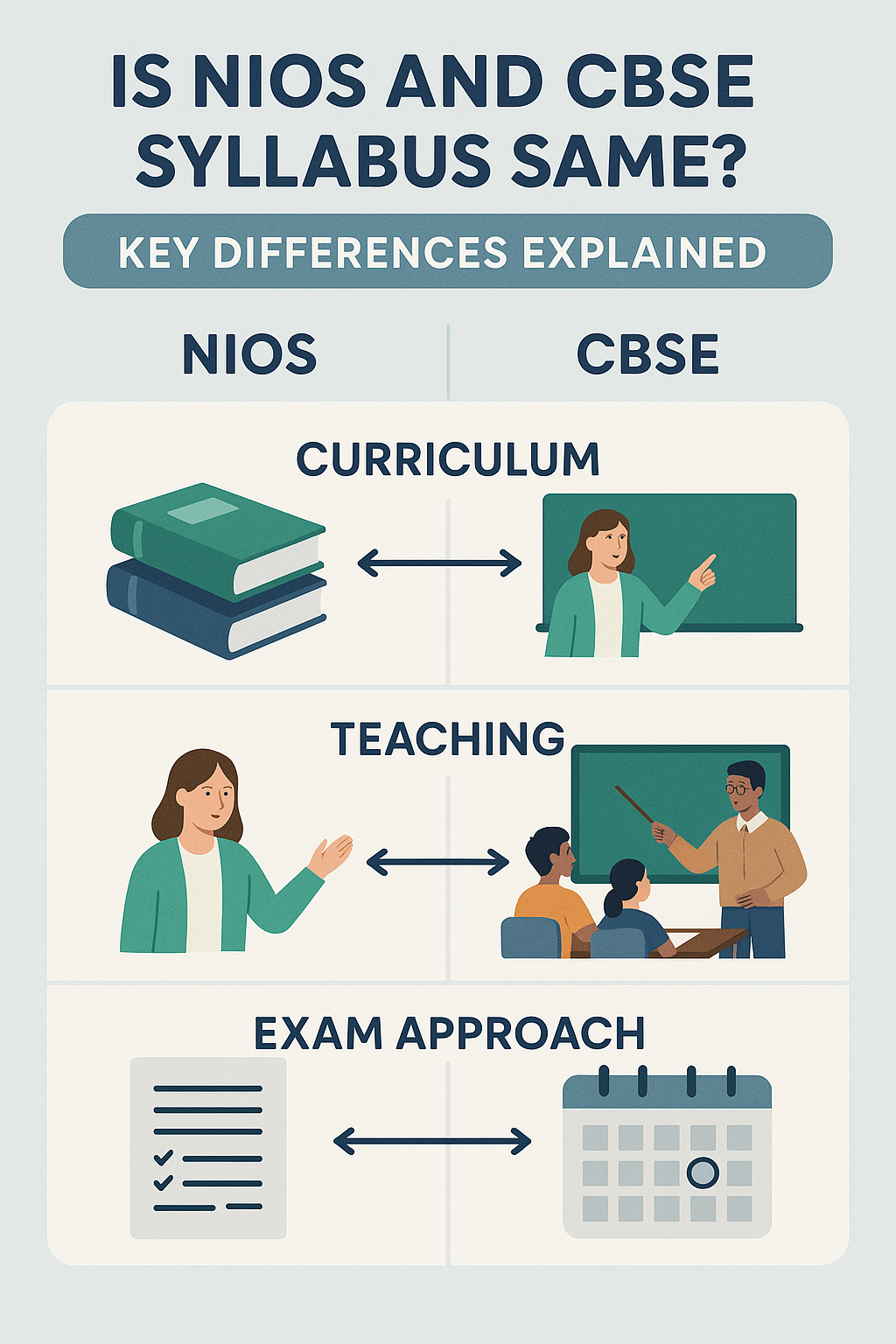
Is NIOS and CBSE syllabus same? Discover the key differences in curriculum, teaching, and exam approach. Learn how...
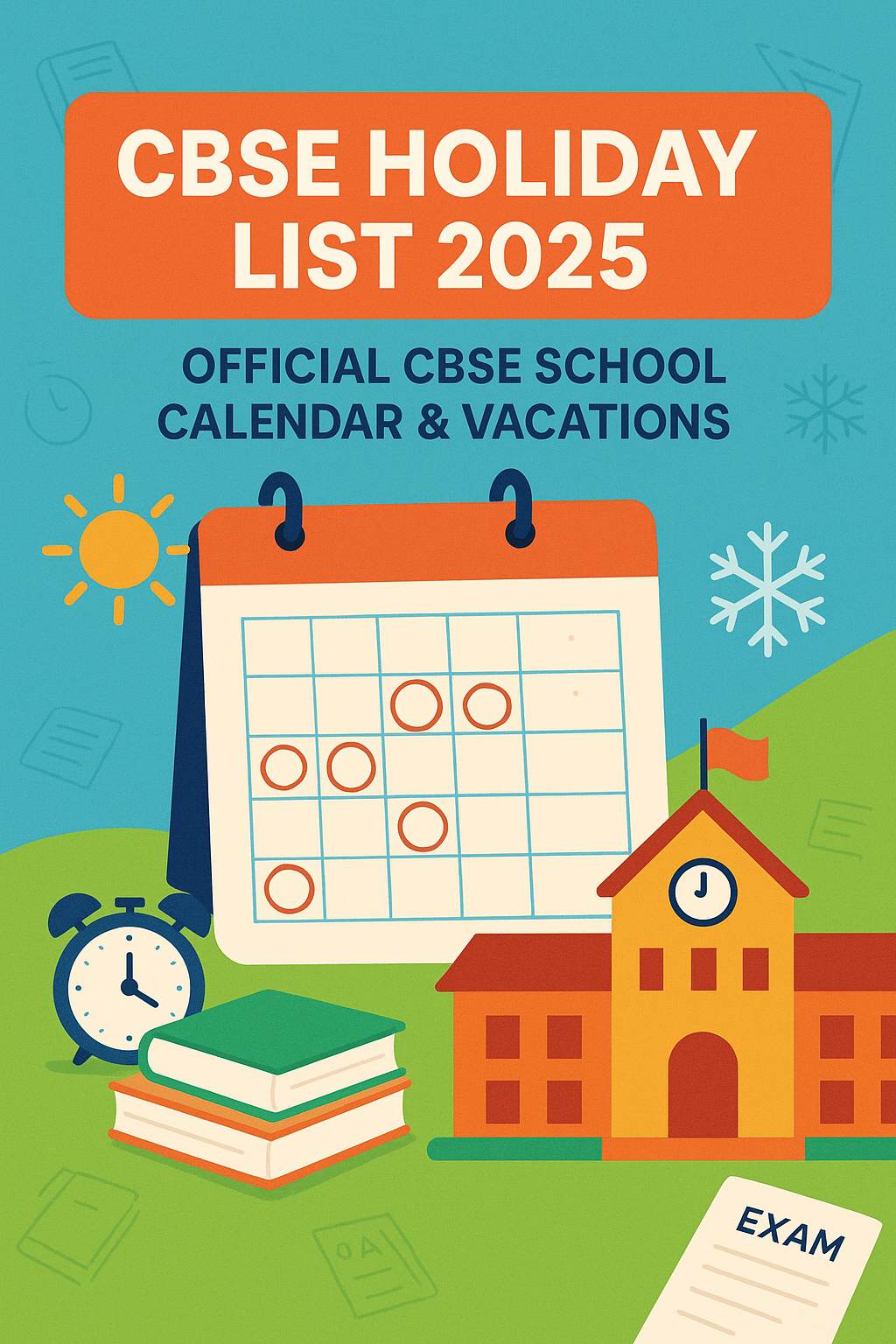
CBSE Holiday List 2025: Explore the official school calendar, national & regional holidays, summer & winter...
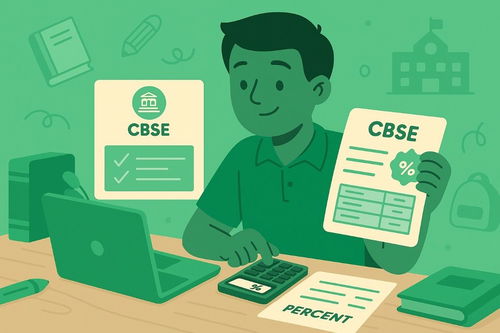
Learn how to calculate your CBSE 12th percentage from your marksheet using the official formula with a simple...
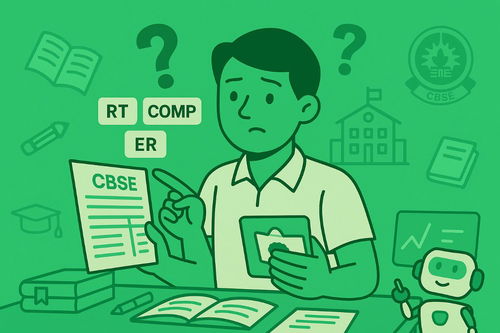
Confused about RT, COMP, and ER on your CBSE marksheet? Learn their meanings, reasons, and what steps you should...
Learn everything about the CTET exam for aspiring CBSE school teachers, including eligibility, syllabus, preparation...

Looking to apply for the CBSE Single Girl Child Scholarship Scheme? Learn eligibility, documents, application steps,...

Discover everything parents and students need to know about the CBSE Class 9 registration process, including...
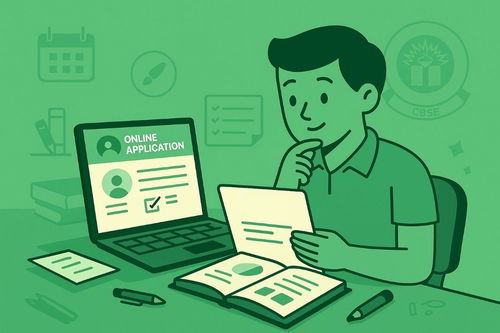
Learn everything about the CBSE private candidate application process and rules. Understand eligibility,...

Confused about the CBSE answer key? This guide explains how to access it, interpret it, and use it to analyse your...

Confused about how CBSE re-evaluation or re-checking works? This guide explains eligibility, steps, fees, deadlines,...

Discover how to use the CBSE Academics website to access important resources like curriculum, sample papers, and...
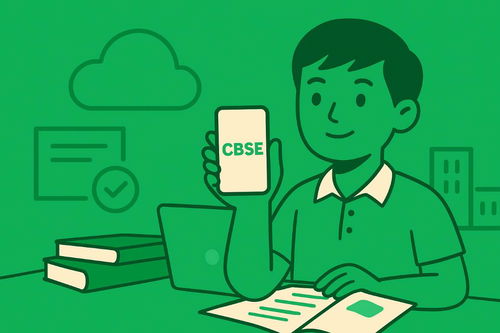
Learn how to easily access your CBSE marksheets and certificates using DigiLocker. This step-by-step guide helps...
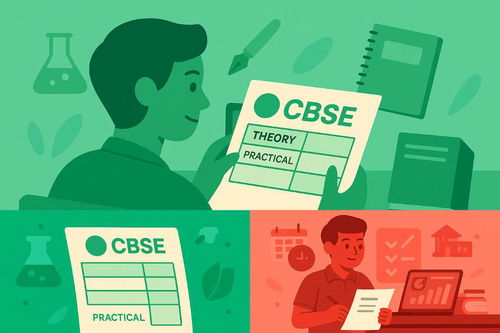
Confused about CBSE passing marks for theory and practical exams? This guide explains the minimum marks needed to...

Learn how the CBSE Open Book Exam will be implemented for Class 9 and Class 11 students. Understand the benefits,...
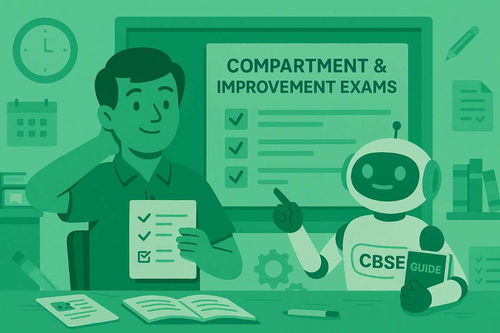
Confused about the CBSE compartment and improvement exam process? This complete guide explains eligibility, how to...
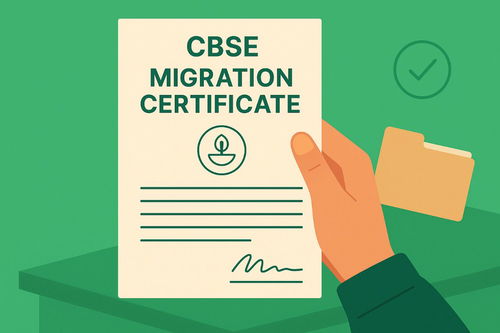
Learn how to obtain your CBSE Migration Certificate after Class 10 or Class 12. This detailed guide walks you...
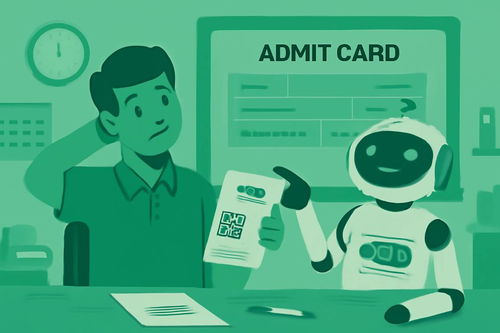
Confused about your CBSE Admit Card? This easy step-by-step guide explains how to download it, what details to...

Discover what CBSE competency-based questions are and learn how to answer them expertly to you ace your exams.

Boost your Class 10 CBSE board prep with sample papers. Learn how to revise smartly, manage time, and score higher...

Learn how to score high in the CBSE curriculum with a subject-by-subject guide, expert tips, and AllRounder.ai tools...

Compare CBSE vs ICSE to choose the best board for your child. Understand syllabus, teaching style, exam prep, fees, and more.

Understand the latest CBSE marking scheme and question paper pattern. Learn about competency-based questions,...

Want to score above 95% in your CBSE Class 10 boards? Our strategy guide breaks down topper study plans to revision...

Compare CBSE vs ICSE to find the best board for NEET and JEE preparation. Understand syllabus match, exam formats,...

Treat your CBSE Class 12 exams using an athlete's approach to help you train, strategize, and perform your best on exam day.

Get ready for your CBSE Class 10 board exams with our survival kit. Find the official syllabus, a smart study...

Learn how to verify CBSE marksheets, certificates, and results online. Step-by-step guide for students and parents...

Master CBSE with top-rated tools, study planners, and expert online help. Perfect guide for Class 9–12 students...

Learn about CBSE – its full form, history, objectives, and structure. Get insights into CBSE’s role in Indian education.
Resources
-
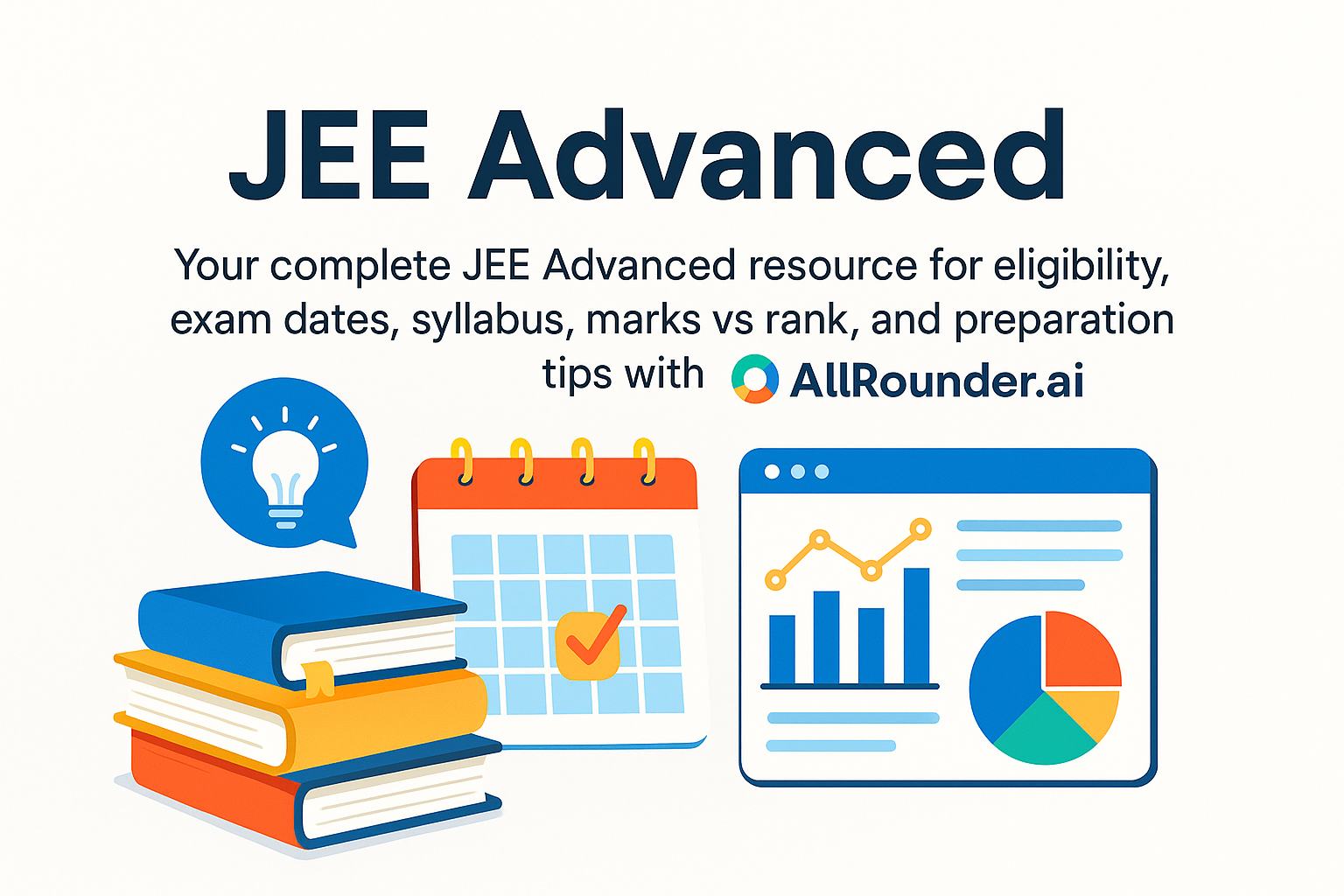
Your complete JEE Advanced resource for eligibility, exam dates, syllabus, marks vs rank, and...
-
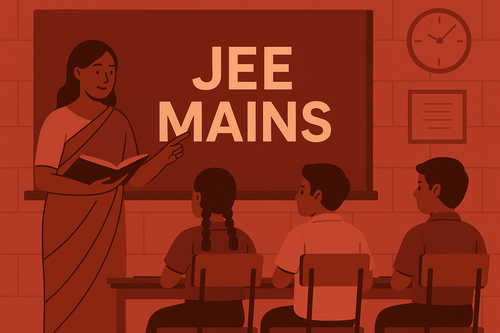
Understand the entire JEE Main process, from application and eligibility rules to the exam...
-

Explore the IB Board – a global curriculum emphasizing holistic, student-centered learning...
-

Learn about CBSE – India’s national school board offering a standardized curriculum, NCERT...
-

Explore everything about the ICSE board – its curriculum, subjects, exam format, and academic...

